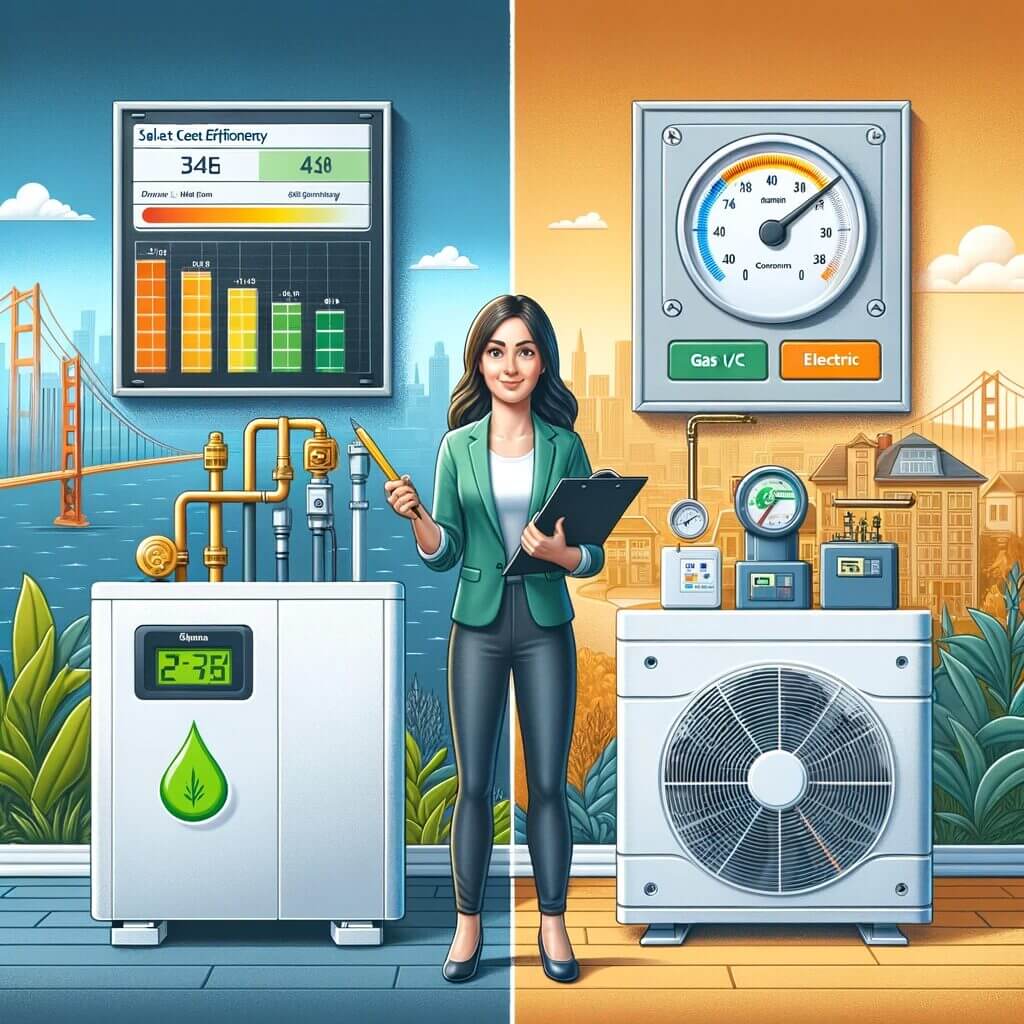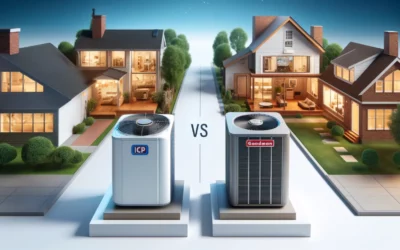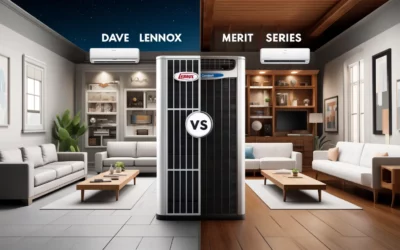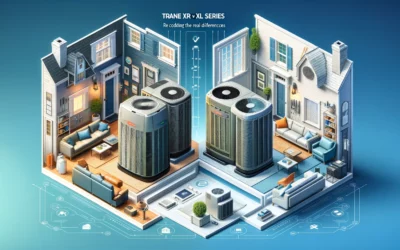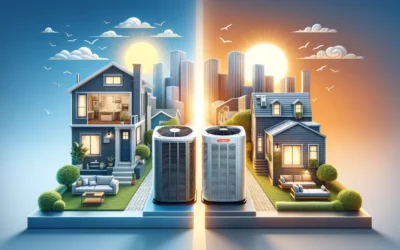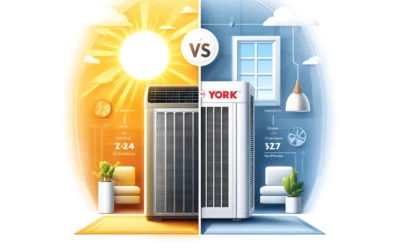Welcome to our informative post about “Cost Efficiency: Heat Pump AC vs Gas/Electric HVAC in California”. In this post, we aim to offer you accurate and helpful data about the cost efficiency of different heating systems – Heat Pump AC and Gas/Electric HVAC. We believe that understanding these systems’ workings can significantly help reduce your heating bills and environmental impact. With rising energy costs and a growing need for energy efficiency, this information is invaluable to California residents. We have gathered information from reliable sources and expert opinions to provide you with the knowledge needed to make an informed decision about the most cost-efficient, effective, and suitable heating system for your home or office. Whether you are building a new place or looking to upgrade your current system, this post will guide you through the technicalities and financial implications. Enjoy reading!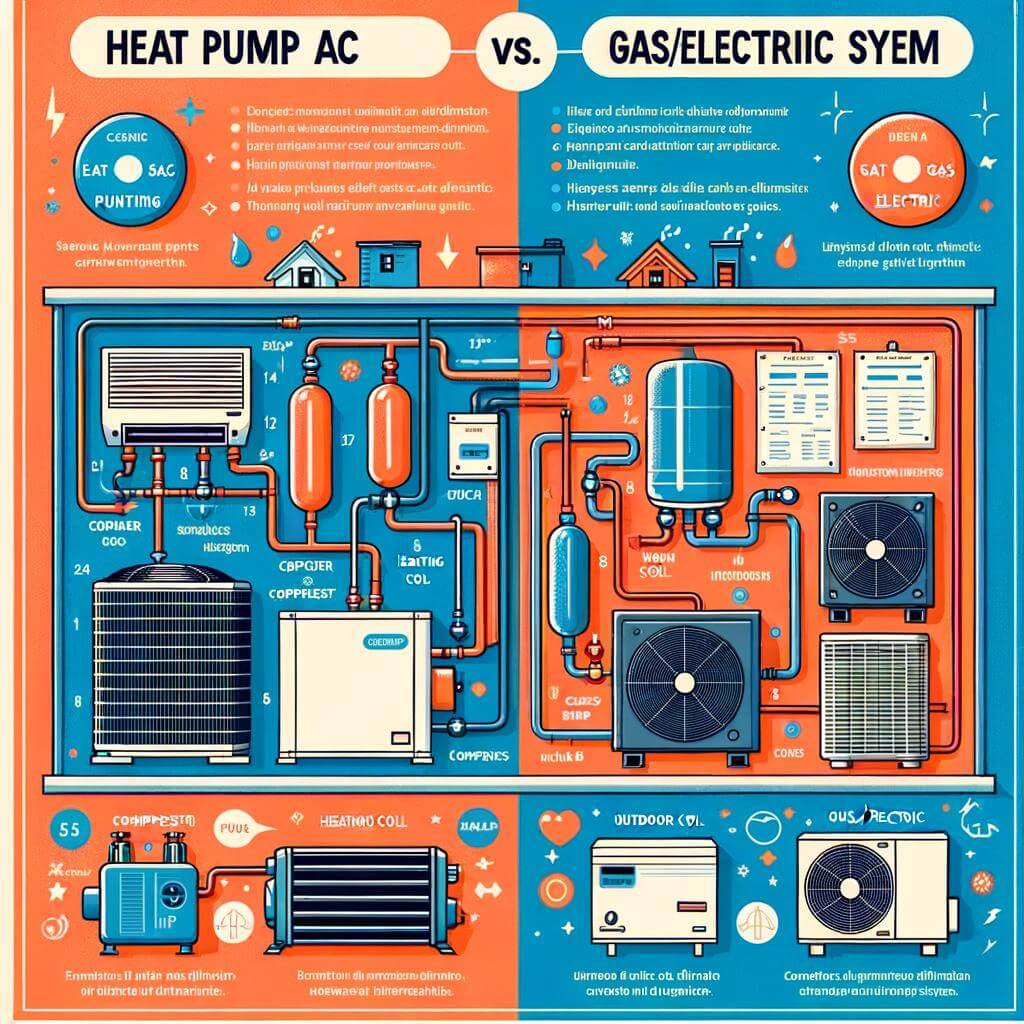
Understanding the Basics: Heat Pump AC vs Gas/Electric HVAC
The decision between a Heat Pump AC (HPAC) and a Gas/Electric HVAC (GEH) is often a tough choice for Californians. Many factors come into play here: from home infrastructure, climate patterns, to energy rates. Understanding the strengths and weaknesses of these systems can be pivotal in making an educated choice.
Firstly, Heat Pump Air Conditioners work by transferring heat from one place to another. This makes them highly effective in moderate climate conditions. They present an eco-friendly and energy-efficient choice as they leverage heat from the outdoor air, even if it’s cold outside. The Gas/Electric HVAC Units, on the other hand, are dual-fuel systems that seamlessly alternate between electricity (for AC and the heat pump) and fossil fuels (like natural gas or oil for the furnace), depending on which is most cost and energy-efficient.
- HPAC – Uses less energy, has higher upfront costs, low maintenance, eco-friendly, works best in moderate climates.
- GEH – Uses more energy, has lower upfront costs, requires regular maintenance, effective in all climates, conventional method.
| Features | Heat Pump AC | Gas/Electric HVAC |
|---|---|---|
| Energy Efficiency | High | Moderate |
| Installation Costs | Higher | Lower |
| Maintenance | Low | Regular |
| Best Climate | Moderate | All |
| Eco-friendly | Yes | No |
In conclusion, if you’re in California, where the weather is mostly warm with mild winters, you might prefer the eco-friendliness and efficiency of Heat Pump AC units. However, if you’re in regions with more extreme weather conditions, a Gas/Electric HVAC unit could be more suitable, assuming you don’t mind the higher energy consumption and regular maintenance. Ultimately, the right decision will depend on your specific circumstances, preferences, and values.

How HVAC Systems Operate in California’s Climate
Given California’s relatively mild, Mediterranean climate, understanding how different HVAC systems function in this unique environment can help you make an informed and cost-efficient choice. Some might argue that heat pump AC systems are largely unsuitable for California due to the lack of extreme temperatures. But, the year-round temperate weather could be seen as an advantage, allowing heat pump AC systems to function optimally with lower operating costs compared to gas or electric HVAC systems. Let’s delve deeper into this topic.
Unlike gas or electric HVAC systems, heat pump AC systems can cool and heat your home by simply reversing their operation – absorbing heat from the outside air to warm your home during winter months and acting as an air conditioner in the summer. They are highly efficient even in temperatures just above freezing point. You might consider the following factors:
- Climate: While heat pump AC systems perform best in climates that never dip below freezing, California’s occasional chilly winter nights are still well within their effective operating range.
- Initial cost: While the upfront cost of a heat pump AC system might be higher than a gas or electric HVAC system, the lower long-term operating costs often offset this.
- Energy efficiency: Heat pump AC systems can provide up to three times more heat energy than the electrical energy they consume, making them arguably the most energy-efficient HVAC choice for California homeowners.
.wp-block-table.alignleft th, .wp-block-table.alignleft td {
padding: 5px;
text-align: left;
border: 1px solid #ddd;
}
| Heat Pump AC | Gas/Electric HVAC | |
|---|---|---|
| Initial Cost | High | Low |
| Operating Cost | Low | High |
| Energy Efficiency | High | Moderate |
| Suitable for CA climate | Yes | Yes |
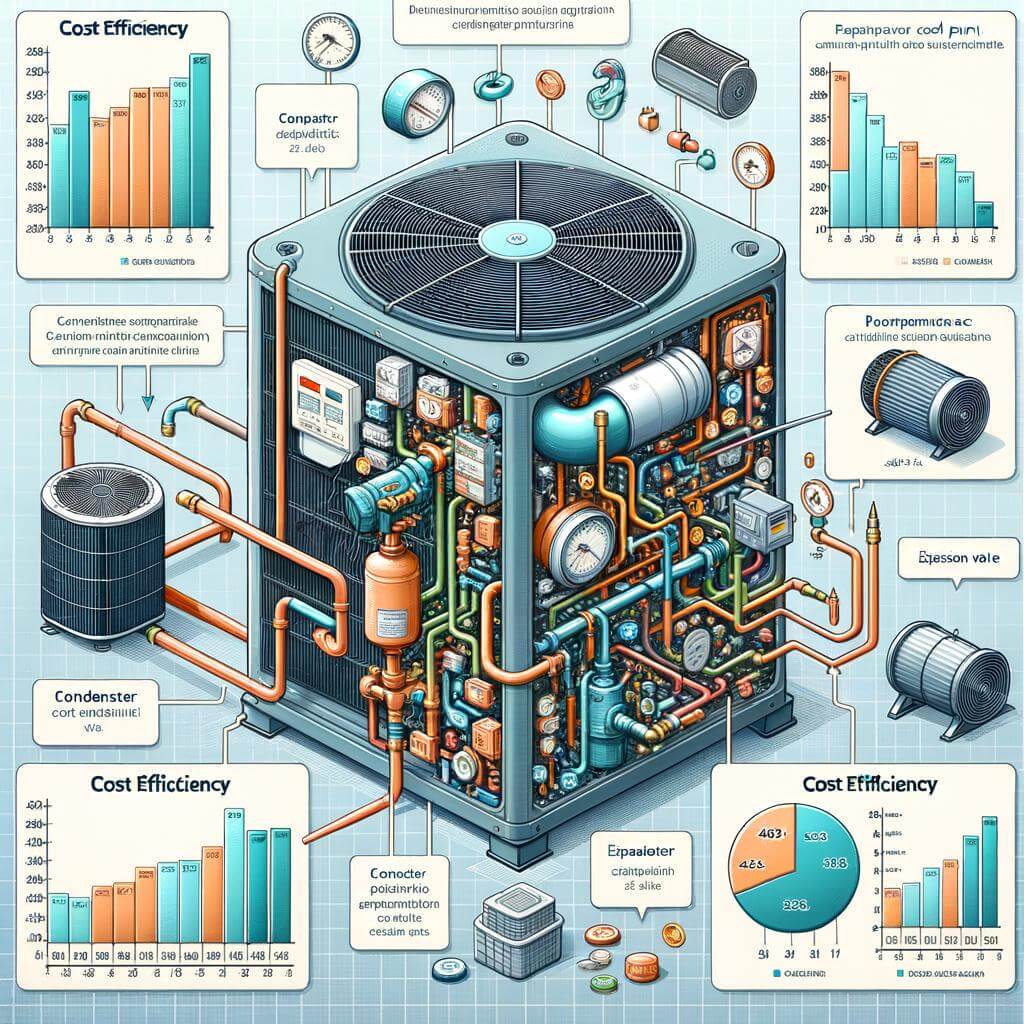
Delving into the Cost Efficiency of Heat Pump AC Systems
When exploring the arena of cost-efficient heating and cooling systems, the Heat Pump Air Conditioning (AC) model clearly stands out. This system, famed for its high-level energy efficiency, functions by transferring heat rather than generating it. Two vital components form its core – a condenser and an evaporator. The latter absorbs heat from the surrounding air and transfers it indoors during the winter, and vice versa in the summer. A distinct advantage of these systems is that they can be powered using renewable energy sources, leading to significant reductions in energy costs and making them an eco-friendly choice.
- Fuel Efficiency: Heat pump AC systems can produce heat energy up to three times the electric energy they consume.
- Longevity: Heat pumps have an excellent lifespan that ranges anywhere between 14-15 years.
- Dual-Purpose: Apart from cooling, they can also provide heating, thereby saving the capital investment for a heater.
In contrast, the more traditional Gas/Electric HVAC system, while popular, lacks in several areas when pitted against the Heat Pump AC model. These systems primarily create heat by burning natural gas inside a furnace. This means their efficiency largely depends upon the price of gas, which is subject to market volatility, rendering them less cost-effective in the long run. Also, they contribute to higher levels of greenhouse gas emissions compared to heat pump AC systems.
| Cost Factor | Heat Pump AC | Gas/Electric HVAC |
|---|---|---|
| Installation | High | Medium |
| Maintenance | Low | High |
| Energy Costs | Low | High |
| Longevity | Long | Shorter |
In conclusion, although the initial outlay for a heat pump AC may be higher, the long-term savings in the form of lower energy and maintenance costs, as well as its positive environmental impact, make it a more cost-efficient option, especially in mild climate regions like California.
Capitalizing on Gas/Electric HVAC Systems in California
Unleashing Cost Efficiency
Comparing heat pump AC with traditional gas/electric HVAC systems could become an eye-opener for most California homeowners. The decision depends on multiple factors, including initial cost, energy efficiency, maintenance costs, and environmental impact.
- Initial Cost: The upfront costs could be a stumbling block for many. A heat pump AC, though comparatively expensive, has the potential to offset this disadvantage by guaranteeing lower energy bills.
- Energy Efficiency: Heat pump ACs are beast when it comes to energy efficiency, transforming almost all of the energy they consume into heating or cooling. Gas furnaces, on the other hand, lose about 20-30% of energy through the flue.
- Maintenance Costs: The complexity of gas/electric HVAC systems leads to higher maintenance costs. Heat pumps, being simpler and less prone to faults, demand much less.
Environmental And Financial Wins
When it comes to environmental considerations, heat pump ACs are undeniably the better choice. As a renewable technology, they have considerably lower CO2 emissions compared to their gas/electric counterparts.
| System | Average CO2 Emissions (in lbs/year) |
|---|---|
| Heat Pump AC | 1500 |
| Gas/Electric HVAC | 3000 |
Furthermore, with California’s high electricity prices, the superior energy efficiency of heat pumps can lead to substantial cost savings. By combining the use of solar power with heat pump ACs, homeowners can further capitalize on their investment. Solar-powered heat pumps are not only green but also allow you to be independent of the grid, which can be particularly appealing given California’s occasional power outages.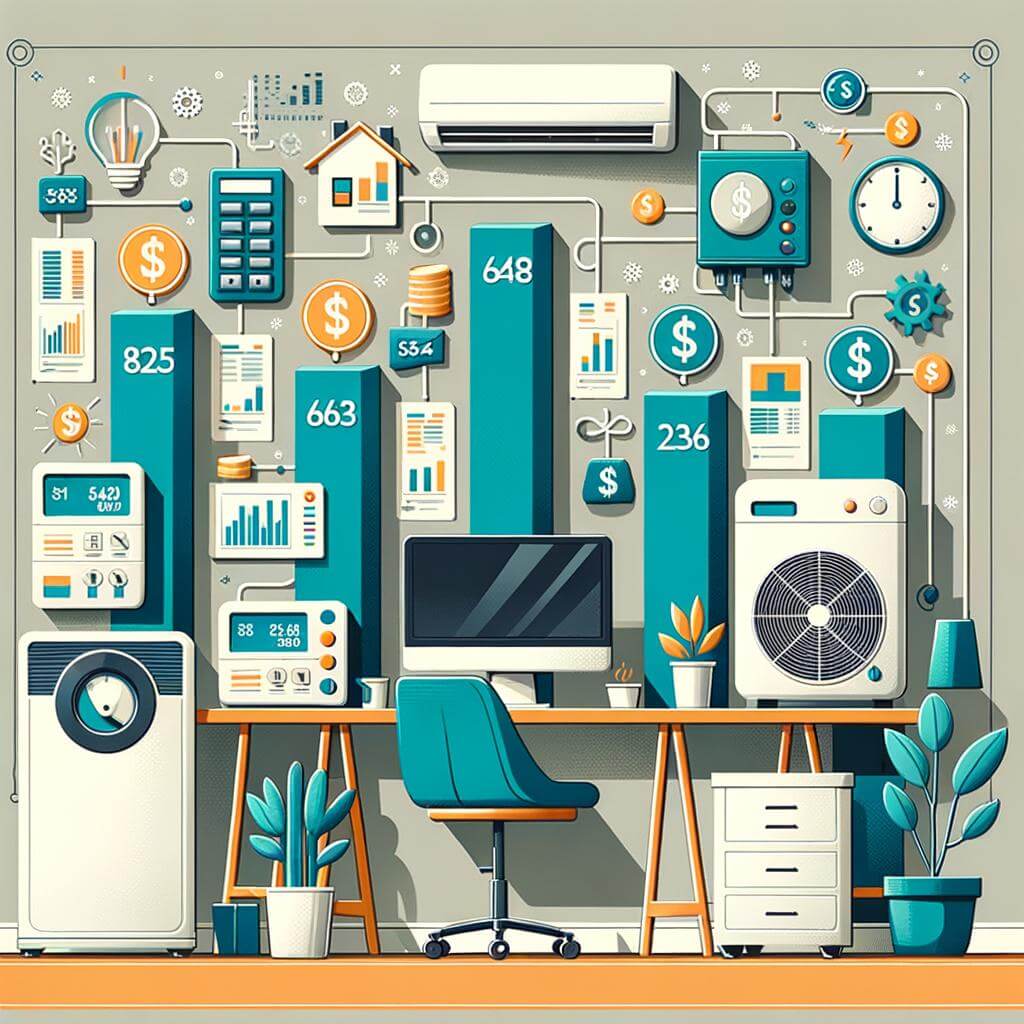
Making an Informed Heating/Cooling Option: Comparing Initial Setup & Maintenance Costs
When deciding on a home heating and cooling system, it’s critical to consider both initial setup cost and ongoing maintenance expenses. Both heat pump AC systems and traditional gas/electric HVAC systems have their unique advantages and disadvantages in these regards. Understanding these factors will help you make an informed decision that suits your budget and cooling or heating requirements. Heat pump AC systems are typically more expensive upfront. However, they make up for the higher initial costs in terms of energy efficiency and lower maintenance costs. The efficiency of a heat pump system can lead to significant savings on energy bills, especially in warmer climates like California. These systems have fewer moving parts, reducing the risk of failures and cutting related repair and maintenance costs. “`html
| Type of System | Initial Setup Cost | Annual Maintenance Cost | Energy Efficiency |
|---|---|---|---|
| Heat Pump AC | High | Low | High |
| Gas/Electric HVAC | Low | High | Moderate |
“` On the other hand, gas/electric HVAC systems are typically cheaper to install. However, their operating costs can be higher due to less energy efficiency and potentially higher maintenance costs. These systems also tend to be less environmentally friendly due to the combustion of fossil fuels, which could be a consideration if you’re aiming for a green lifestyle. When comparing the two, always consider:
- Upfront cost versus lifetime cost
- Energy efficiency
- Maintenance and repair costs
Given the potential for substantial energy savings over time, a heat pump AC system may oftentimes prove to be the more cost-effective choice in the long run, particularly in places with warmer climates like California. Meanwhile, gas/electric HVAC systems may provide a more affordable choice for homeowners who expect to move within a few years and thus are more concerned about upfront costs.
Expert Recommendations: How to Optimize Energy Efficiency in Your Home
Below, we delve into the specifics of both heating systems, highlighting key differences and potential benefits. It’s important to note, however, that the suitability of a heating system depends on various factors such as the average weather in your area, the size and insulation of your home, and your heating preferences. The Heat Pump ACs are highly recommended for their energy-efficiency, especially for milder climates like California. Unlike a traditional HVAC system, these pumps work by transferring heat instead of generating it. During the summer, the heat is transferred outside your home, and during the winter the process is reversed, serving both as a heating and cooling system.
- Lower Operational Costs: Because they only require electricity to operate and not to produce heat, their operational costs are lower. This can represent significant savings when compared to gas/electric HVAC.
- Eco-Friendly: Heat pump ACs are greener alternatives as they drastically reduce the CO2 emissions that a traditional HVAC system would produce.
- Longer Lifespan: With proper care and maintenance, a Heat Pump AC can exceed the typical lifespan of a standard HVAC system, providing good value for your initial investment.
On the other hand, traditional Gas/Electric HVAC systems remain a popular choice for their proven reliability and capability to generate a significant amount of heat, making them more suitable for colder climates. While they often have higher operational costs due to the combustion process, they can also be more efficient in larger homes where a significant amount of heat needs to be distributed.
- Greater Heat Output: Gas furnaces can produce higher heat temperature over heat pump ACs, making them ideal for colder regions.
- Reliability: Gas/electric HVAC systems have a proven track record and are widely installed, making parts and service readily available.
- Quick Heating: The system can heat a space faster compared to heat pump ACs.
| Heat Pump AC | Gas/Electric HVAC | |
|---|---|---|
| Operational Costs | Lower | Higher |
| Eco-Friendliness | High | Medium |
| Lifespan | Longer | Average |
| Heat Output | Medium | High |
| Reliability | Good | High |
| Heating Speed | Slower | Fast |
Remember, the choice between a Heat Pump AC and a Gas/Electric HVAC system is not a one-size-fits-all decision. It’s recommended to consider the specifics of your situation and consult with a professional before making a choice.
Exploring Potential Savings: Long Term Financial Implications of Your Choice in California
California residents are constantly on the lookout for energy-efficient, cost-effective ways to maintain home comfort. One of the significant choices that homeowners face is selecting their heating and cooling systems, more specifically – a heat pump air conditioner and a gas/electric HVAC. This decision can have lasting financial implications, especially over a long period of time. The initial costs for installing a Heat Pump AC and a Gas/Electric HVAC in California can vary greatly. Generally, heat pump AC units are more expensive, but they can be significantly cheaper to operate in the long run. This is due to their high efficiency since they transfer heat instead of creating it, leading to lower energy consumption. On the other hand, gas/electric HVACs may require less upfront investment but they could cost more over time in energy bills.
| System Type | Initial Cost | Long Term Cost |
| Heat Pump AC | High | Low |
| Gas/Electric HVAC | Low-Mid | Mid-High |
Moreover, there are other factors that individuals should consider such as maintenance costs, system lifespan, and potential savings from government rebates or incentives. For instance,
- Maintenance: Heat Pump AC systems require less regular maintenance compared to Gas/Electric HVACs, possibly contributing to lower long-term costs.
- Lifespan: With proper maintenance, Heat Pump AC systems can have a longer lifespan offering greater returns on your initial investment.
- Rebates/Incentives: There are several energy efficiency programs in California that offer incentives for using certain types of systems, including heat Pump ACs.
Finally, it’s crucial to consider the environmental implications of your choice. Gas/electric HVACs, especially older models, can have higher carbon emissions compared to heat pump systems. With many Californians increasingly conscious about their environmental impact, this can be a significant deciding factor. In conclusion, the choice between a heat pump AC and traditional HVAC systems isn’t a one-size-fits-all decision. Yet, given the energy efficiency, long-term cost savings, and environmental benefits, heat pump AC units appear to be a competitive and viable alternative, especially in climates such as California. As always, consider your property’s specific needs, local energy costs, and typical climate to make an informed decision. Remember to take advantage of our expert opinion, research, and fact-based findings to guide your decision. We appreciate your time, and hope this article has been enlightening and useful in your quest for a cost-efficient HVAC solution. Until next time, stay cool, California!

